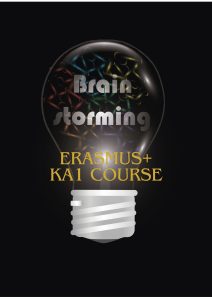
- Duration
- 5 days
- Language
- English
Course Description
The inclusiveness approach in education has a long history.
This concept, which was previously seen as an educational approach for individuals with disabilities or special education needs, has now expanded to include all disadvantaged groups and has gained the meaning of ensuring equal access to social, cultural, educational, and vital activities and opportunities for all individuals.
The inclusive education application is aimed to supporting the personal and professional development of teachers, supporting their intellectual, emotional, and social development, and providing a transformation in European society on inclusion through teachers. This training, which has long-term, deep social and philosophical content, has been developed on an activity-based basis.
The clear purpose of education is to contribute to the development of our children with a human-centered approach, to ensure that each child’s differences and characteristics are included in educational activities, to eliminate discrimination against children in schools, to prevent personal changes and adjustments in the classrooms, and to contribute to the perception of each child as a valuable individual with their differences. The implicit purpose of this training is to enable trainees to acquire constructivist teaching techniques as skills through activity-based training practices.
Available Dates & Locations
- İstanbul, Türkiye
- Mon, Nov 17, 2025 - Fri, Nov 21, 2025
- 5 Days
- Antalya, Türkiye
- Mon, Jul 13, 2026 - Fri, Jul 17, 2026
- 5 Days
- Bodrum, Türkiye
- Mon, Aug 24, 2026 - Fri, Aug 28, 2026
- 5 Days
Methodologies Of The Course
The course methodology will be based on active participation and experiential learning, as participants will be involved in the lessons through case studies, drama, and games. In addition, in the lessons, inquiry-based learning and cooperative learning techniques will be applied, as they will consist of theoretical information, concrete exercises, and group discussions. By considering and applying each approach/tool in your daily teaching practice, you will gain new perspectives on creating an inclusive, multicultural school environment.
In addition, the participants will be provided with preparatory material that includes the presentation of the course and covers all important concepts. The course instructor will also send you a questionnaire to identify your needs and interests. At the end of each training day, participants will have the opportunity to ask questions and exchange feedback with the facilitator and other participants.
Pedagogical Approach
- Main components and principles of inclusive education
- Recognize different types of students with special needs in the regular classroom
- Learning to design, prepare and present interactive tasks for students of different abilities
- Motivating special students to learn about their psycho-social needs and to get rid of difficulties
- Sharing good practices and discussing challenges with trainees and course instructors
Teaching Methods
- Expression
- Argument
- Group Teaching
- Active Learning
- Individual
- Presentation (Briefing)
Learning Outcomes
- Examining and understanding practices, policies, and systems in inclusive education
- Developing the teaching of strategies and methods in inclusive education
- Developing knowledge of best practices and the latest research in teaching in an inclusive classroom
- Get practical ideas to apply in the classroom
- practical applications in developing language and communication skills
- Sharing good practices and discussing challenges with trainees and course instructors
Objectives
- Disadvantaged individuals and their characteristics
- Physical, developmental, emotional/behavioral, and sensory disorders
- Inclusive learning environments
- Good practices in inclusive education
- Integrating good practices into the curriculum
Type of Certification Awarded
1. Certificate of Attendance
2. Europass Certificate (if requested)
Our courses are designed and delivered in compliance with the quality standards of the Erasmus+ Key Action 1 Quality Standards for Courses.
Schedule of the activities
Online Meeting Program
– Meeting with the trainer
– Presentation of info pack
– Q & A session
- Ice Breaker Activity
- Introduction to inclusive education terminology
- Rationale for inclusive education
- Examples of inclusive education from European countries
- Disadvantaged students and their characteristics
- The importance of the environment while providing education to students with special needs
- Integration of students with special needs into the classroom
- Ways to improve language and communication skills for individuals with special needs
- How should we approach and interact with individuals with special needs?
- Ways to support the social skills of individuals with special needs in the classroom
- The importance of parent and environmental involvement
- Helping students improve their performance in the classroom
- Creating lesson plans for inclusive education
- Discussion about inclusive education
- Evaluation of the course

